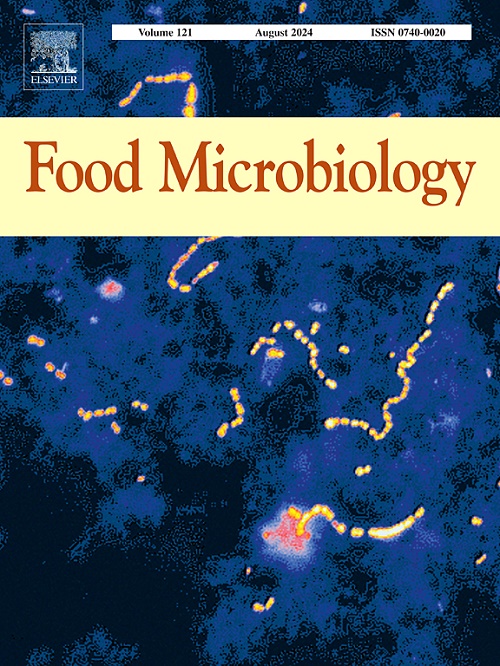Stresses in the food chain and their impact on antibiotic resistance of foodborne pathogens: A review
IF 4.5
1区 农林科学
Q1 BIOTECHNOLOGY & APPLIED MICROBIOLOGY
引用次数: 0
Abstract
Antibiotic resistance in foodborne pathogens represents a major public health concern. The farm-to-fork continuum is recognized as a critical pathway for the development and spread of this resistance. Throughout the food chain, foodborne pathogens are exposed to diverse environmental stresses, including temperature extremes, osmotic pressure, food additives, and disinfectants, and others. These stress factors can influence antibiotic resistance, with effects varying based on the type and intensity of stress, the pathogen species and strain, and the specific antibiotic involved. Stress conditions can trigger bacterial adaptive responses, such as general stress response systems, the SOS response, and genetic mutations, which can confer cross-protection and enhance antibiotic resistance. Conversely, stress-induced injury or metabolic suppression may increase bacterial susceptibility to certain antibiotics. Understanding these complex interactions is crucial, as suboptimal food processing can inadvertently select for resistant strains. Investigating the molecular mechanisms underlying stress adaptation is essential for developing effective strategies to mitigate antibiotic resistance. Optimizing food processing protocols and implementing robust monitoring systems throughout the food chain are essential steps to reduce these risks. A comprehensive understanding of stress-induced antibiotic resistance will provide a scientific basis for improving food safety and safeguarding global public health.

食物链中的压力及其对食源性病原体抗生素耐药性的影响:综述
食源性病原体的抗生素耐药性是一个主要的公共卫生问题。从农场到餐桌的连续过程被认为是这种耐药性发展和传播的关键途径。在整个食物链中,食源性病原体面临各种环境压力,包括极端温度、渗透压、食品添加剂和消毒剂等。这些应激因素可影响抗生素耐药性,其影响因应激的类型和强度、病原体种类和菌株以及所涉及的特定抗生素而异。应激条件可以触发细菌的适应性反应,如一般应激反应系统、SOS反应和基因突变,这些反应可以赋予交叉保护并增强抗生素耐药性。相反,应激引起的损伤或代谢抑制可能增加细菌对某些抗生素的敏感性。了解这些复杂的相互作用是至关重要的,因为不理想的食品加工可能会无意中选择耐药菌株。研究胁迫适应的分子机制对于制定有效的减轻抗生素耐药性的策略至关重要。优化食品加工协议和在整个食品链中实施强有力的监测系统是减少这些风险的必要步骤。全面了解应激性抗生素耐药性,将为提高食品安全和保障全球公众健康提供科学依据。
本文章由计算机程序翻译,如有差异,请以英文原文为准。
求助全文
约1分钟内获得全文
求助全文
来源期刊

Food microbiology
工程技术-生物工程与应用微生物
CiteScore
11.30
自引率
3.80%
发文量
179
审稿时长
44 days
期刊介绍:
Food Microbiology publishes original research articles, short communications, review papers, letters, news items and book reviews dealing with all aspects of the microbiology of foods. The editors aim to publish manuscripts of the highest quality which are both relevant and applicable to the broad field covered by the journal. Studies must be novel, have a clear connection to food microbiology, and be of general interest to the international community of food microbiologists. The editors make every effort to ensure rapid and fair reviews, resulting in timely publication of accepted manuscripts.
 求助内容:
求助内容: 应助结果提醒方式:
应助结果提醒方式:


